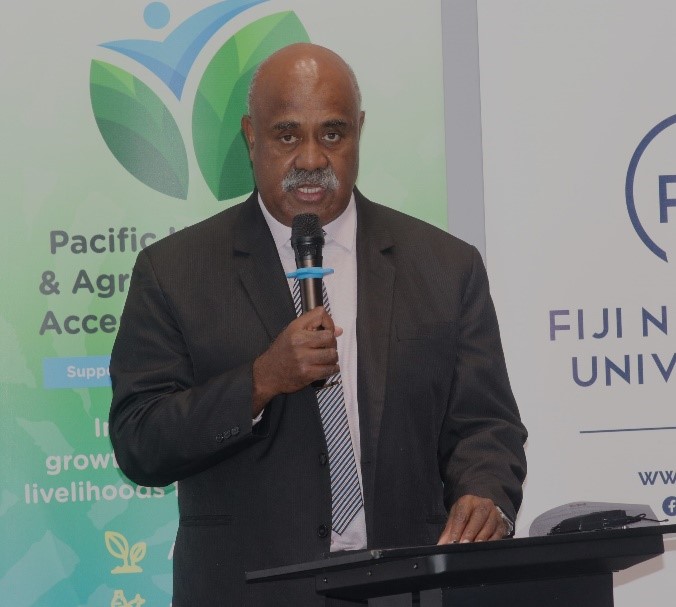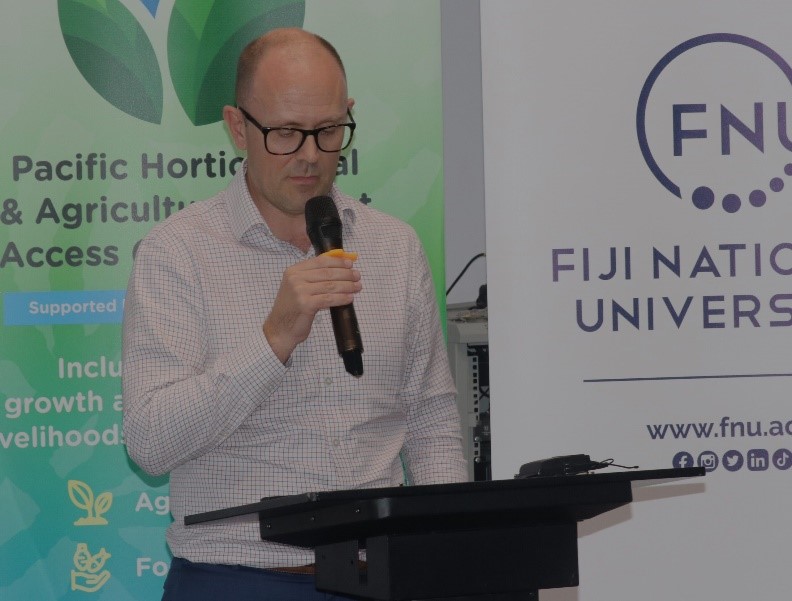The Fiji National University (FNU) and the Pacific Horticultural and Agricultural Market Access Plus (PHAMA Plus) Program today launched a collaborative research initiative for locally grown kava.
As part of efforts to improve the consistency and reliability of Fiji’s kava production and grow exports of quality kava products, FNU’s College of Engineering, Science and Technology and PHAMA Plus have partnered to conduct a study that looks at the kavalactone content of different kava varieties grown in Fiji.
Kavalactones are the chemical compounds present in kava from which their relaxant properties are derived. The research will provide new scientific data which include the effect of soil type and climatic conditions on kavalactone content and peak age of maximum kavalactone levels.
To do this, the research will be conducted in several kava growing regions around Fiji, including Bua, Kadavu, Saqani, Savusavu, Taveuni, Rabi, Ovalau, Naitasiri, Tailevu, Rotuma, Koro, and Rakiraki.

Fiji’s kava industry has emerged as a major export earner, raking in FJD4.5 million in 2021. This new and important research with PHAMA Plus will provide kava consumers, producers and exporters important information on the kavalactone content for both product and industry development, and further improve the economic viability of the industry,” said Assistant Minister for Agriculture and Waterways, Hon. Tomasi Tunabuna, while launching the research.
FNU Acting Vice-Chancellor, Professor Unaisi Nabobo-Baba, said the collaboration aimed to conduct comprehensive research on Fijian kava, a significant agricultural product of the country.“As a future-focused, dual-sector university, FNU undertakes research with real-world impact, aligned to national priorities and with global relevance.
We are delighted to partner with PHAMA Plus on the research work to study its strength and efficacy,” Professor Nabobo-Baba said.
“Under Australia’s Commercial Kava Pilot, Fiji exported more than 55,000 kg of kava to Australia from December 2021 to December 2022. Through PHAMA Plus, Australia is proud to support research efforts that build a safe and sustainable supply of Fijian kava that meets international market entry requirements and builds demand in Fiji’s key export markets, including Australia,” said Acting Australian Deputy High Commissioner, Andrew Shepherd.

Through Australia and New Zealand support, PHAMA Plus works with kava exporters, growers, and government agencies in Fiji to improve quality systems, standards and ensure market access is maintained.
ENDS
For more information, please contact PHAMA Plus, Country Manager-Fiji, Navitalai Tuivuniwai at n.tuivuniwai@phamaplus.com.au
